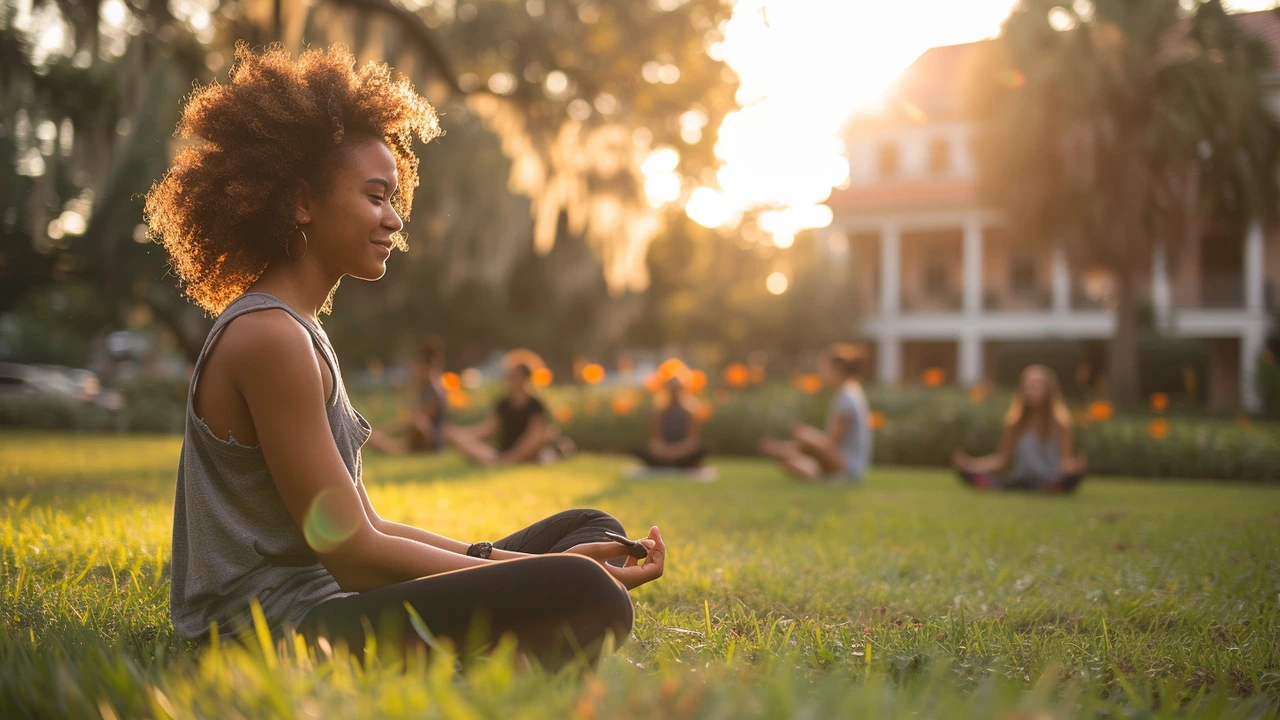Stress shows up as tight shoulders, restless sleep, or a gut that won’t behave. You don’t need a long retreat to fix it — small, specific actions add up. This guide gives clear tools you can use right away and habits that actually lower stress over weeks, not just hours.
When you feel flooded, try one of these fast resets:
- Box breathing: inhale 4 seconds, hold 4, exhale 4, hold 4. Repeat 4 times. It calms your nervous system fast.
- Progressive muscle release: tense a muscle group for 5 seconds, then let go. Move from feet to head. Ten minutes will drop physical tension.
- Grounding: name 5 things you can see, 4 you can touch, 3 you can hear, 2 you can smell, 1 you can taste. It brings your mind back to now.
- Short walk outside: 10 minutes of steady walking lowers stress hormones and clears thinking better than scrolling your phone.
Build simple routines rather than chasing motivation. Try these for 2–4 weeks and notice the change:
- Move daily: 20–30 minutes of activity (walk, yoga, sports massage sessions for recovery) helps sleep and mood.
- Sleep routine: same bedtime and wake time, dim lights an hour before bed, limit caffeine after 2pm.
- Mindful eating and snacks: choose steady-energy snacks (nuts, yogurt, fruit) and avoid sugar crashes that spike anxiety.
- Two short mindfulness breaks: 5 minutes after lunch and 5 minutes before bed. Use breathing or a brief body scan to reset.
- Creative breaks: draw, hum a tune, or move to music for 10 minutes. Creative arts therapies work for stress even if you think you aren’t creative.
Your gut and stress are linked — if your stomach acts up when you worry, try calming habits (gentle exercise, fiber-rich foods, probiotics). If you use tech, biofeedback apps and simple heart-rate tools can help you notice and change stress patterns in real time.
When to ask for more help: If stress keeps you from work, harms sleep for weeks, or causes panic attacks, reach out. Talk to your primary care or a mental health provider. If you’re on TRICARE, check your benefits for counseling, therapy, and covered meds before you start a new treatment.
Small steps add up: pick one quick fix and one daily habit to start. Track them for two weeks and adjust. Stress doesn’t disappear overnight, but with focused moves you’ll get more sleep, better digestion, clearer thinking, and more energy within weeks.
Want specific how-to guides? Try articles on mindfulness, biofeedback, gut health, or creative arts therapy for step-by-step routines and easy practices you can use today.

Hello beautiful people! Wellness is more than just physical fitness; it's about mental and emotional stability too. That's why, I want to share with you secrets to mastering the art of stress reduction. This comprehensive guide covers helpful techniques for stress management, different approaches for tackling stress, and how to maintain a stress-less lifestyle. Together, let's journey towards mastering mental health and living a happier, healthier life.
Read More